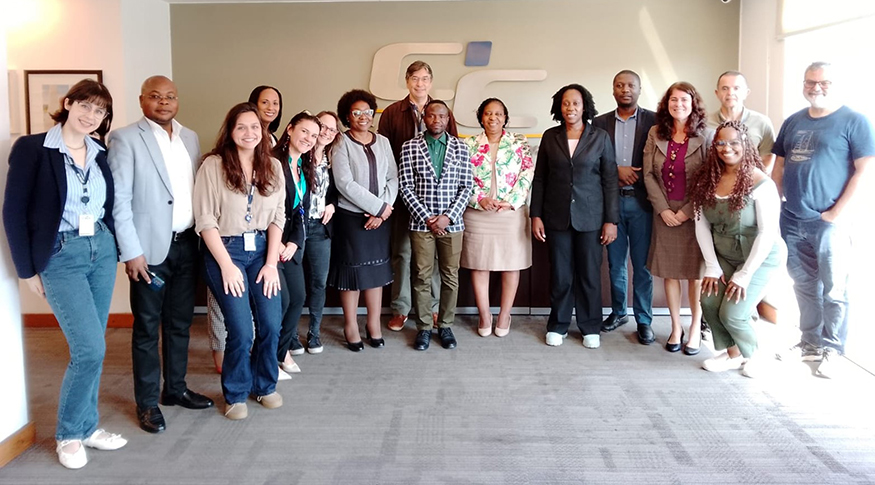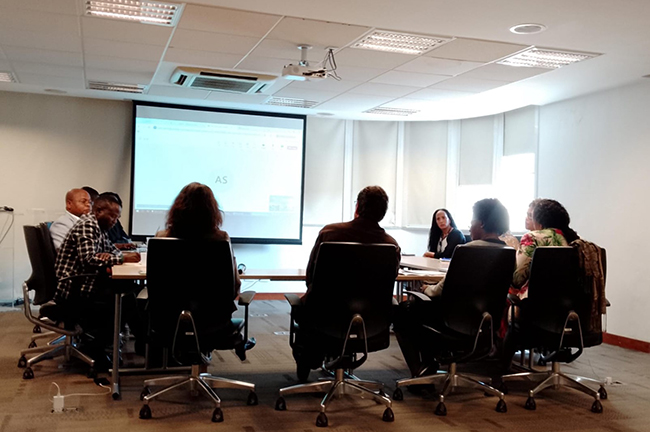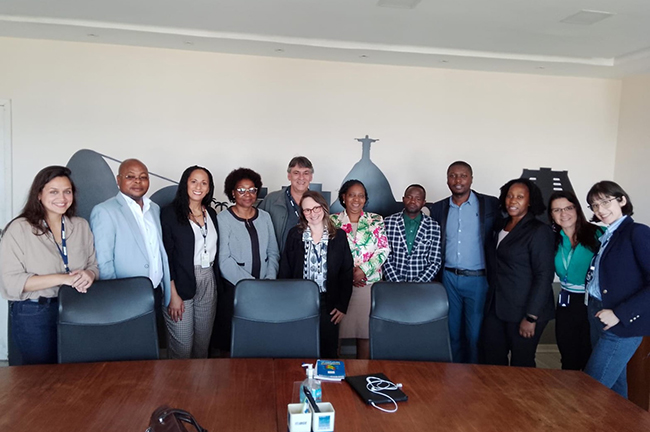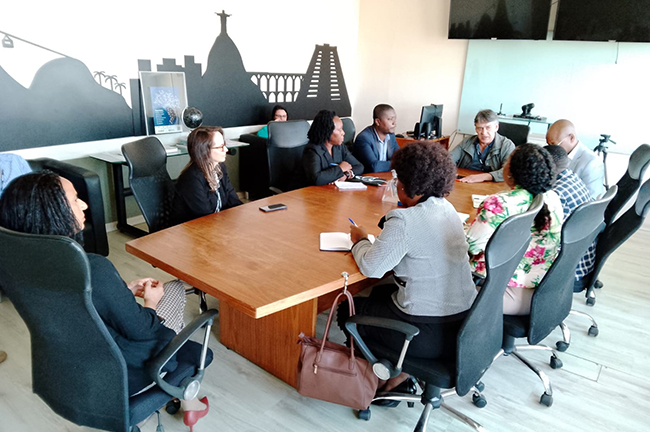Internacional
IBGE receives technical visit from Mozambique to discuss strategic plan
August 19, 2025 02h00 PM | Last Updated: August 23, 2025 06h04 PM

The Brazilian Institute of Geography and Statistics (IBGE) hosted, from August 18 to 22, a technical visit from the National Institute of Statistics of Mozambique (INE-MOZ) at its headquarters downtown Rio de Janeiro, to exchange experiences on the implementation, monitoring, and evaluation of the Strategic Plan for the National Statistical System of Mozambique.
The opening of the meeting was attended by IBGE President Marcio Pochmann; National Director of Foreign Relations Marta Francisco Mabote Chaquisse; President of the National Institute of Statistics of Mozambique Eliza Mónica Ana Magaua; and Head of International Relations at IBGE Andrea Diniz, as well as technicians from both institutes.
The visit is intended to strengthen the institutional capabilities of the National Statistical System of Mozambique (SEN), with a focus on the implementation, monitoring, and evaluation of the Strategic and Operational Plans for Statistical Production. The mission is part of the Activity Plan of the Directorate of Coordination and Foreign Relations (DICRE) of INE-MOZ.
"I understand that the opportunity to share experiences allows for updates that have been made both by us and by INE Mozambique. We are experiencing a unique moment, and the transformation of national statistical institutes is necessary. Therefore, it is important to understand the challenges these institutions have had in the face of the digital transformation we are experiencing," emphasized the president Marcio Pochmann.
The president of the National Institute of Statistics of Mozambique, Eliza Mónica Ana Magaua, thanked IBGE for the welcome. "It is a pleasure for us to exchange experiences. We know we have different particularities; our country is more rural, and there is nothing better than the help of people who speak Portuguese and who have experience in the subject, like the IBGE," she stated.

"We are grateful for the opportunity the IBGE has given us to discuss aspects related to the National Statistical System. This mission aims to gather IBGE's experience in coordination mechanisms, identifying standardization instruments, and monitoring and evaluation of the National Statistical System, including strategic plans and strategic management. We expect to learn about the work of the IBGE System and how we can contribute to improve the System in Mozambique," said Marta Francisco Mabote Chaquisse, National Director of DICRE.
IBGE's Head of International Relations, Andrea Diniz, highlighted the importance of the visit for the Institute: "We have a long-standing partnership with INE Mozambique; it's an Institute with which we have had significant exchanges. We already had a mission this year, in June, and we're having our second. For the IBGE, the mission fits into the South-South cooperation scenario and is extremely important. The IBGE has a lot of experience and has been a reference for countries, especially those in the CPLP (Community of Portuguese-Speaking Countries), because the language barrier is also real and concrete, and speaking the same language facilitates exchanges."
On the first day of the visit, the context of South-South Cooperation, the National Statistical System (SEN), SEN planning instruments, and the Mozambican Statistical System were discussed. The delegation paid a visit to the Rio de Janeiro State Superintendence to learn how the statistical data collection activities for IBGE surveys are planned and executed.


Among the proposed topics for discussion at the meetings are: The Brazilian National Statistical System; The functioning of the Mozambican Statistical System; IBGE's strategic and operational planning process; Fundamentals that ensure the articulation between national development plans, the government's five-year plans, and the plans of the Brazilian statistical system; Monitoring and evaluation methods in use at the IBGE; The role of the planning and monitoring unit; Digital systems used for planning, monitoring, and statistical evaluation; Communication and coordination strategies; Assessment of the quality of administrative data; among others.



















